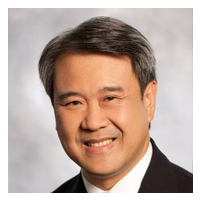Federal Court Clears Cisco for Helping China’s Surveillance and Internet Censorship
 Owen Chan, chairman and CEO of Cisco Greater China
Owen Chan, chairman and CEO of Cisco Greater China
A federal district court in Maryland absolved Cisco Systems of responsibility for the use of its technology by the government of China in carrying out human rights abuses.
The technology was used in China’s “Golden Shield” program, which censored and tracked Internet use. The system was used to find the named plaintiff in the suit, Du Daobin, who was prosecuted for writing articles critical of the Chinese Communist Party and urging fair treatment for farmers.
In dismissing the case, Judge Peter Messitte wrote that “from all that appears, Cisco technology remains a neutral product that can be used in innumerable non-controversial ways” and that the Chinese plaintiffs “failed to indicate with any logic what it means to customize technology that would permit the sort of human rights violations alleged here, such as torture.”
But activists say Cisco specifically designed this piece of technology to enable the Chinese government to track down dissidents. According to the Electronic Frontier Foundation, part of Cisco’s marketing presentation describing its technology’s benefits to the Chinese government said that one of the goals was to “Combat Falun Gong evil religion and other hostilities.”
“While a tech company could not (and should not) be held accountable when governments misuse general use products for nefarious purposes, early evidence indicates that Cisco did much more,” the foundation said. “This included actively customizing, marketing and providing support for its monitoring and censorship technologies even as it knew that they would be used to identify, locate, and surveil Chinese democracy and religious freedom activists.”
The case was brought in the United States under the 1789 Alien Tort Statute, which reads “The district courts shall have original jurisdiction of any civil action by an alien for a tort only, committed in violation of the law of nations or a treaty of the United States.” Foreign plaintiffs began using the law in 1980 to fight human-rights abuses.
The Cisco ruling could signal a tightening of the use of the Alien Tort Statute. Similar suits against foreign companies have been dismissed in recent months. The ruling could affect a suit filed in California by members of the banned Falun Gong religious group, which the Chinese call an “evil cult.”
“The courts have substantially narrowed the interpretation of the tort law,” Gary Clyde Hufbauer, a senior fellow at the Peterson Institute for International Economics and co-author of Awakening Monster: The Alien Tort Statute of 1789, said according to Agence France-Presse (AFP).
Human-rights groups are trying to step up the pressure on corporations to stop selling technology to repressive regimes. “There is a broad movement that has been holding companies accountable on human rights for a long time,” Rebecca MacKinnon, a New America Foundation fellow who heads a “Ranking Digital Rights” project assessing the conduct of major technology firms, told AFP. Some companies have adopted principles for privacy and human rights under the aegis of the non-government Global Network Initiative MacKinnon said, “but unfortunately Cisco has not taken that step.”
Another company, Blue Coat Systems, has been accused by human-rights groups of supplying technology similar to Cisco’s to be used to stop political opposition in Syria and China.
-Steve Straehley
To Learn More:
Maryland Court Dismisses Landmark Case That Sought to Hold Cisco Responsible for Violating Human Rights (by Cindy Cohn and Rainey Reitman, Electronic Frontier Foundation)
Cisco Cleared in Rights Case, as Tech Sector Watches (by Rob Lever, AFP)
U.S. Firm Accused of Helping Dictatorships Spy on and Censor Internet (by Ken Broder, AllGov)
Chinese Torture Victims Sue Cisco for Helping Communists (by Noel Brinkerhoff and David Wallechinsky, AllGov)
- Top Stories
- Unusual News
- Where is the Money Going?
- Controversies
- U.S. and the World
- Appointments and Resignations
- Latest News
- What If China Invaded the United States?
- Donald Trump Has a Mental Health Problem and It Has a Name
- Trump Goes on Renaming Frenzy
- Trump Deports JD Vance and His Wife
- Trump Offers to Return Alaska to Russia






Comments